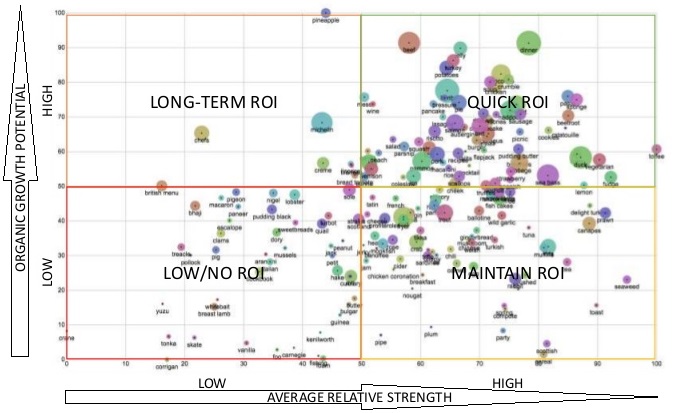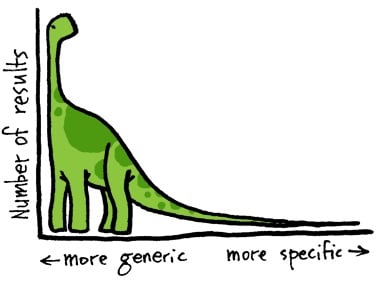DIY SEO: Keyword Clustering

Today, we are going to shed light on keyword clustering – one of key SEO trends in 2016. Big Data is changing everything in the world around you, and SEO is not an exception. Since there is rapidly growing demand for specific niches and search engines are trying to structurize unstructured data related to these niches, keyword clustering introduces a new powerful approach to SEO which is based on the usage of Big Data. But what exactly do you need to run a successful SEO campaign in 2016?

The first and foremost thing you need while trying to improve your current SEO and marketing strategies is a large database of keywords related to your niche (often these are long tail keywords). Then, it is necessary to determine your ranking position, demand, and value for each keyword. At this stage, you can see the most successful keywords and their usage within your business, but don’t rush to conclusions – there is still a plethora of work to be done.
Now, analyze other market players from your business niche and compare your strength with the closest competitors. That’s right, SEO keyword competition analysis is required. Choose one of available competitor website analysis tools, and run your research based on keyword clustering.
Let’s name some facts that characterize keyword clustering before going any further. Although it is entirely associated with keywords, Keyword clustering is all about the structure of the web, since it illustrates how SERPs are represented within natural clusters. Besides, keyword clustering is aimed at semantic labeling of such clusters and finding clusters where you will be a number one market player. Sounds intriguing, isn’t it?

Well, single short-time wins against weaker competitors don’t seem very promising, but if you use keyword clustering as a base for your real-time strategy, you constantly win in a competition against other market players and short-term growth becomes a long-term perspective. Thus, you become an authority in a natural cluster.
Consequently, keyword clustering, Big Data, and SEO can be mixed within a single approach to achieve the following goals:
- identify your niche competitors
- get a deep analysis of market dynamics
- find out the performance of keywords you use and you can use
- identify better keywords
Please note that you can increase traffic by optimizing existing content with keywords you use, optimizing existing content with new keywords, and creating new content with new keywords.
The organic growth potential (OGP) of your keywords varies from low to high. The same is about their average relative strength (ARS). Keywords with the low OGP and ARS have low or zero ROI (Return on Investment). The combination of high OGP and low ARS leads to long-term ROI, while low OGP and high ARS maintain ROI. Quick ROI is possible with high OGP and ARS, but keywords with high OGP and ARS often have a high level of competition (see the following image).

Table of contents
Identifying a keyword cluster
You can easily identify your keyword cluster wi the help of Google’s :
- open settings
- set “Phrase Match”
- enter your keyword (it can be “Barcelona Bakery” for instance)
- search within your country (in our case, it is Spain)
- get the variations
Now, let’s have a look at keywords that have been already receiving traffic:
- go to your Google analytics account
- open the “Organic” search traffic section
- press the “Advanced” button
- include words that your phrase consists of (Barcelona and Bakery)
- press the “Apply” button
- get the data feed that contains your keywords which have already generated traffic to your site
Targeting a single keyword means that you are losing traffic and get worser conversion opportunities. Hence, keyword clustering is the best way to get more visitors on your website.
Keyword clustering and long tail keywords
Although longer keyword phrases are less competitive, you should still use a reliable seo keyword competition checker, because a decent tool will make your optimizations more precise.
Besides, if you don’t know how to check seo keyword competition, it will be useful as well. Once you have identified each cluster and know how valuable each keyword is improve your content and link building activities with the new knowledge. It is a quite easy task that should now become a natural part of your daily SEO improvements and content marketing.

It is also necessary to mention that long tail keywords are closer to customers that are going to make a decision or ready to purchase something. Thus, longtails provides the ability to implement micro targeting and make your content better suit your customers’ needs. As a result keyword clusters which consists of all possible keywords related to your business niche outperform a specific keyword phrase in terms of conversion.
We should also mention that keyword clustering and long tail keywords improve rankings for your core keywords. Instead of looking for a single keyword phrase, search engines analyze all content available on a page to understand its subject.
DIY SEO 2016: Keyword clustering and machine learning
You might have seen more than two dozens of different SEO specialists’ opinions gathered in a single article on Keyword Studio in the beginning of 2015. And the topic of keyword clustering had been already covered there. For instance, predicted that in the nearest future keyword research should be based on machine learning. Jason White from talked about focusing on building clusters of related keywords instead of using a single keyword phrase. Marcus Tober from also shared similar thoughts. You can find the full post here: .
That was 2015, so what should we expect from 2016? The aforementioned trend will be more demanded and there will be more companies which understand all the benefits of keyword clustering. Since new and new websites will try to leverage the trend, it is obvious that we will see a lot of new startups that specialize on keyword clustering. Free SEO competitive analysis tools as well as more robust paid solutions will be widely used for content optimization and SEO improvements.
Keyword Clustering Tools and Services
Below, we will gather all new keyword clustering tools and services. The post will be updated after new solutions will be released.
IOCheck SEO Tools

IOCheck is among the first pioneers of modern SEO services which provide their customers with the ability to streamline keyword clustering. The platform offer various SEO tools designed to make your journey to Google top fast and your position there durable.
With IOCheck, you can get a huge list of keywords based on several top keywords for your niche. Besides, the platform offers a SEO competitor analysis tool. To get a deep analysis of other market players, you only have to upload a list of keywords. Furthermore, you can even download a full competitor’s web page and analyze it with IOCheck.
The system not only creates reports, but also provides customers with various recommendations and SEO improvements aimed at different categories of specialists, including copywriters, content managers, and even developers.
As for pricing, there are three plans available. A free seo competition analysis tool serves for demonstrational purposes. A standard seo competition analyzer is designed for usual users. In its turn a full load seo keyword competition checker is aimed at agencies.
To be continued…









